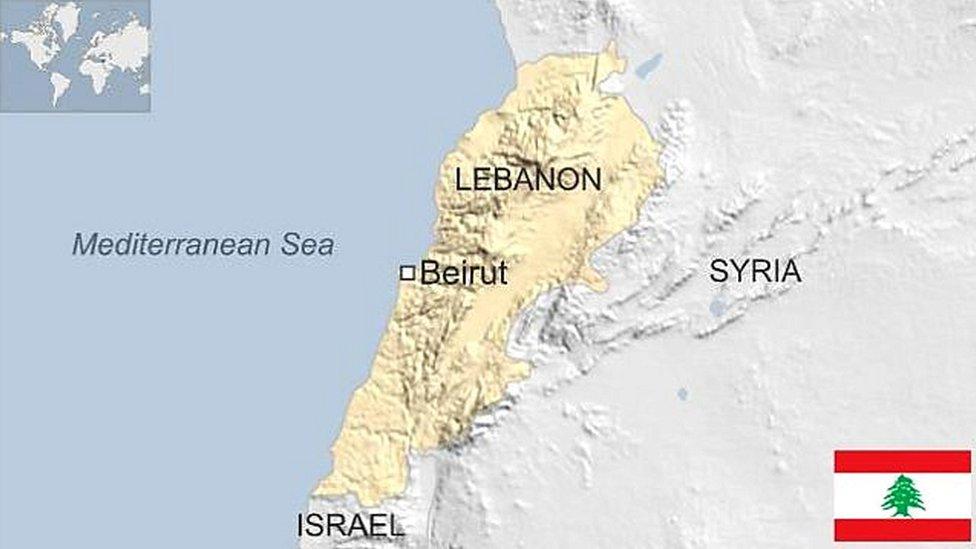Gavin Ford: Two held for Lebanon radio host's murder
- Published

Gavin Ford, who had lived in Lebanon for more than two decades, hosted a popular radio show
Two men have been arrested on suspicion of murdering British radio host Gavin Ford, the authorities in Lebanon say.
Mr Ford - who presented a popular breakfast radio show in the country - was beaten and suffocated to death, the Lebanese Internal Security Forces said in a statement.
The two men have confessed to the crime, the statement said.
Mr Ford's body was found on Tuesday at his home in the town of Beit Meri, east of the capital Beirut.
The 53-year-old joined the Lebanese station Radio One in 1995, and his show Gavin Ford in the Morning was popular with the station's listeners.
In their statement, external, the security forces said the two men came to his house on Monday afternoon with the intention of robbing it. The pair had then "strangled and beat" the radio host.
Allow X content?
This article contains content provided by X. We ask for your permission before anything is loaded, as they may be using cookies and other technologies. You may want to read X’s cookie policy, external and privacy policy, external before accepting. To view this content choose ‘accept and continue’.

A police patrol found Mr Ford's car in a market and thereafter arrested a Syrian man in the Al-Nabaa district of the capital, the statement said.
A second man was arrested five hours later, it added, and Mr Ford's keys, papers and mobile phone were found during a search of the suspect's house.
The radio host studied at the National Broadcasting School in London before going on to present a breakfast show on Radio Caroline, an offshore station in the UK broadcast from a ship.
In an attempt to escape the "constant storms", he later found work with stations in France and Cyprus before moving to Lebanon, where his breakfast show was said to have been the country's most popular since 1996.
Tributes on social media following Mr Ford's death described him as a "bright star" with an "engaging charismatic voice".
Allow X content?
This article contains content provided by X. We ask for your permission before anything is loaded, as they may be using cookies and other technologies. You may want to read X’s cookie policy, external and privacy policy, external before accepting. To view this content choose ‘accept and continue’.

Allow X content?
This article contains content provided by X. We ask for your permission before anything is loaded, as they may be using cookies and other technologies. You may want to read X’s cookie policy, external and privacy policy, external before accepting. To view this content choose ‘accept and continue’.

Allow X content?
This article contains content provided by X. We ask for your permission before anything is loaded, as they may be using cookies and other technologies. You may want to read X’s cookie policy, external and privacy policy, external before accepting. To view this content choose ‘accept and continue’.

- Published28 November 2018

- Published10 January
